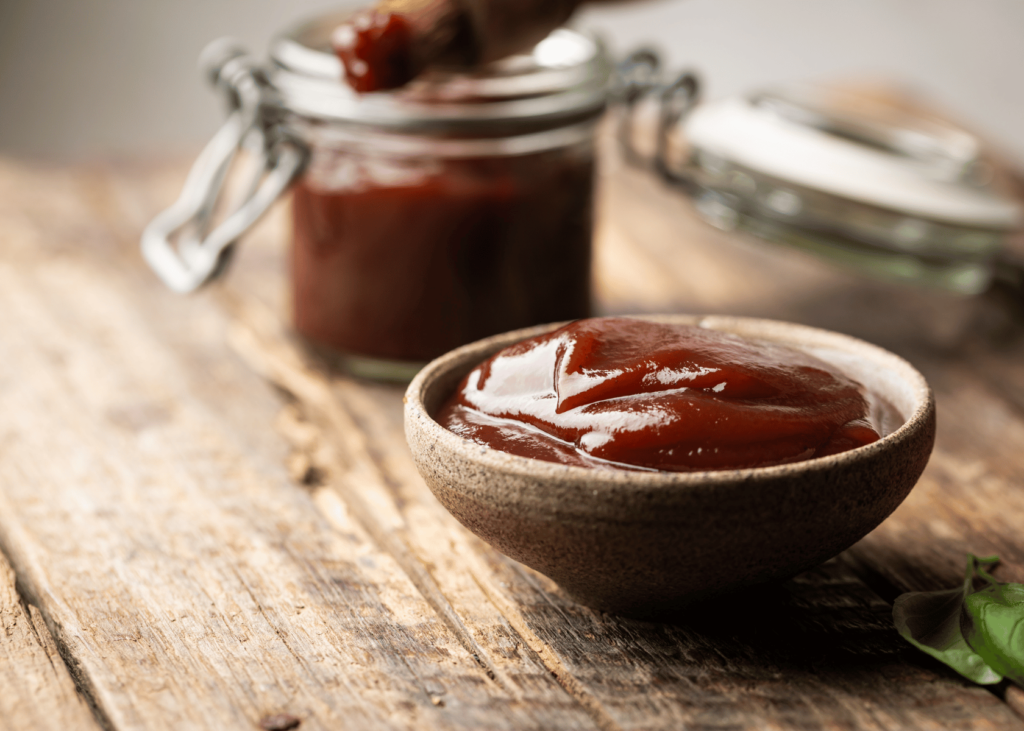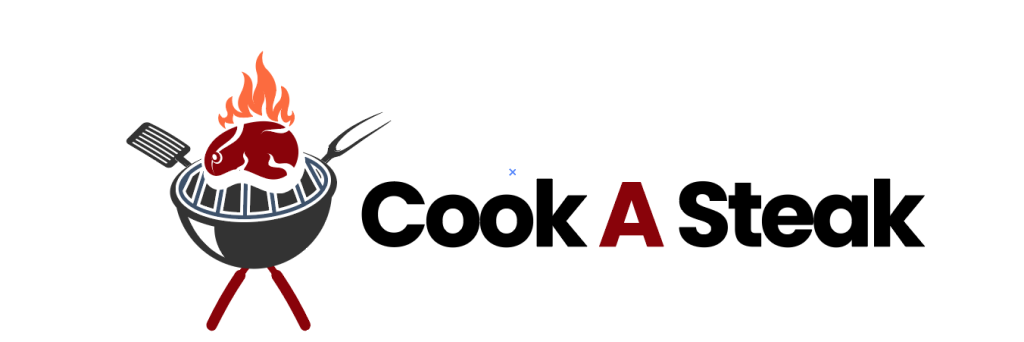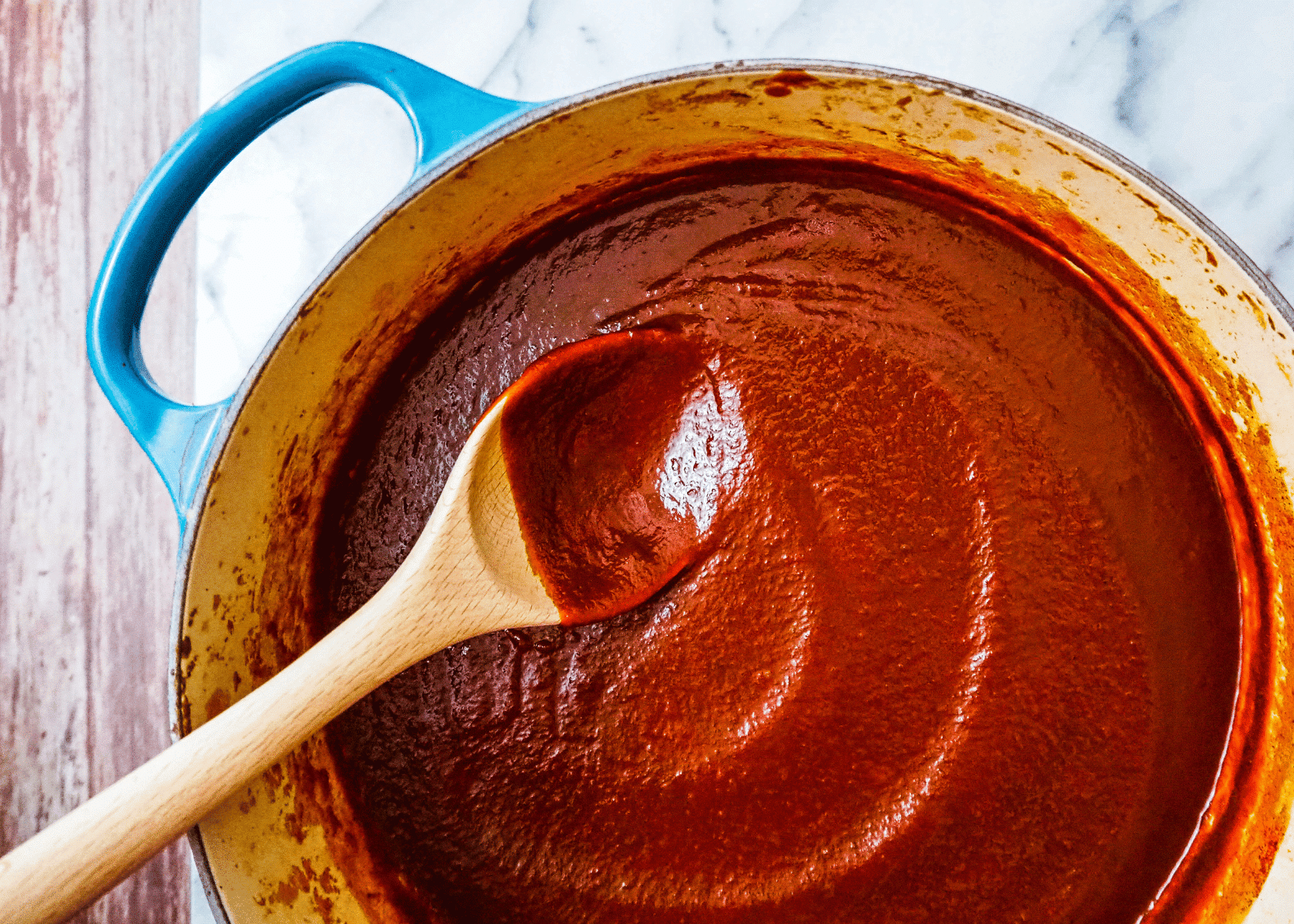Ever found yourself asking, “Does BBQ sauce need to be refrigerated?” This question is common among both culinary enthusiasts and casual cooks. Interestingly, most store-bought BBQ sauces are shelf-stable until opened, but the rules change once you pop that lid! In this article, we’ll thoroughly explore this dilemma: from factors affecting BBQ sauce shelf life to best practices for storing it.
Ready for some saucy knowledge? Let’s get started!
Key Takeaways
- Store-bought BBQ sauces are typically shelf-stable until opened, but once opened, they should be refrigerated to prolong their shelf life and preserve their flavors.
- Homemade BBQ sauces have a shorter shelf life compared to store – bought ones due to the absence of preservatives. You should always refrigerate them and consume them within 1 to 2 weeks for optimal taste and safety.
- Factors such as ingredients and preservatives affect the shelf life of BBQ sauce. Store – bought options contain natural and artificial preservatives that help extend their shelf life, while homemade varieties require immediate refrigeration due to limited additives.
- Proper storage practices include keeping unopened store-bought sauces in a cool, dry place away from direct sunlight, using clean utensils when scooping out sauce, avoiding cross-contamination with raw meat, tightly sealing containers after each use, checking for signs of spoilage like changes in color or texture, and promptly discarding any spoiled sauce.
Does BBQ Sauce Need to Be Refrigerated?
BBQ sauce storage depends on whether it is store-bought or homemade, with shelf-stable options available for the former.
Shelf stable store-bought sauces
Store-bought BBQ sauces are typically shelf-stable, meaning they can stay fresh for extended periods at room temperature without spoiling. This attribute is largely due to the high levels of natural preservatives such as vinegar and sugar found in these types of condiments.
These ingredients help maintain the quality of your sauce, even while stored unrefrigerated on your pantry shelves. However, this rule changes once you crack open the seal. Opened store-bought BBQ sauces require refrigeration to prolong their shelf life and preserve their rich flavors and aromatic qualities.
Despite being laden with preservatives, opened bottles left at room temperature can start deteriorating within a month’s time – but chilling them extends this period significantly.
Homemade sauces and their perishability
Homemade BBQ sauces provide the perfect opportunity to unleash your culinary creativity. However, it’s important to note that these homemade concoctions have a relatively short shelf life compared to their store-bought counterparts.
Due to the lack of preservatives in homemade BBQ sauce, it typically lasts between 1 to 2 weeks when refrigerated at all times. Without proper refrigeration, the sauce can quickly spoil and become unsafe for consumption.
The absence of preservatives in homemade BBQ sauces is what makes refrigeration necessary. Unlike store-bought sauces that contain natural preservatives like vinegar and sugar, homemade varieties are more susceptible to bacterial growth if not kept chilled.
Factors that Affect BBQ Sauce Shelf Life
The shelf life of BBQ sauce can depend on various factors including the ingredients and the presence of preservatives.
Ingredients and preservatives

BBQ sauces can have a variety of ingredients and preservatives that affect their shelf life. Store-bought BBQ sauces often contain vinegar, sugar, tomato paste, spices, and other flavorings.
These natural preservatives help extend the sauce’s shelf life and prevent spoilage. Additionally, some commercial brands may also include artificial preservatives to further enhance their longevity.
On the other hand, homemade BBQ sauces typically contain fewer preservatives compared to store-bought options. This means that they have a shorter shelf life and need to be refrigerated at all times to maintain freshness.
Homemade barbecue sauce usually consists of ingredients like ketchup or tomato sauce as a base along with various spices such as garlic powder, onion powder, paprika or cayenne pepper for added flavor.
Whether it’s store-bought or homemade BBQ sauce, proper storage is essential in preserving its quality and taste. Keeping the sauce in a cool and dry place away from direct sunlight helps prevent deterioration.
Once opened, refrigeration becomes crucial for both store-bought and homemade varieties to maximize their shelf life by preventing mold growth or contamination.
Proper storage and handling
Proper storage and handling of BBQ sauce is essential to maintain its quality and prevent spoilage. Here are some important tips to follow:
- Store in a cool, dry place: Keep your unopened store-bought BBQ sauce containers in a pantry or kitchen cabinet away from direct sunlight and heat sources.
- Refrigerate after opening: Once you open a bottle of BBQ sauce, it should be immediately refrigerated to slow down bacterial growth and extend its shelf life.
- Use clean utensils: When scooping out BBQ sauce from the container, make sure to use clean utensils or spoons to prevent introducing bacteria into the sauce.
- Avoid cross-contamination: To prevent spoilage, never double-dip your utensils or use the same spoon that touched raw meat when scooping out BBQ sauce.
- Seal tightly: After each use, ensure that the lid of your BBQ sauce container is tightly sealed to maintain freshness and prevent air from entering.
- Check for signs of spoilage: Regularly inspect your BBQ sauce for any changes in color, texture, or smell. If you notice mold growth or other contaminants, discard the sauce immediately.
Signs of Spoilage in BBQ Sauce
Signs of spoilage in BBQ sauce include changes in color, texture, or smell, as well as the presence of mold or other contaminants.
Changes in color, texture, or smell
Changes in color, texture, or smell are clear indicators that BBQ sauce has gone bad. Here are some signs to watch out for:
- Discoloration: If the BBQ sauce changes color and becomes darker or develops a greenish tint, it is likely spoiled.
- Separation: When the sauce separates into distinct layers with oil floating at the top, it is a sign of spoilage.
- Texture changes: If you notice any clumps, lumps, or a slimy consistency in the BBQ sauce, it has likely gone bad.
- Foul odor: A sour or rancid smell indicates that the sauce has spoiled and should be discarded immediately.
Presence of mold or other contaminants
Mold and other contaminants can develop in BBQ sauce, indicating spoilage. Here are some signs to watch out for:
- Visible mold growth: If you notice any fuzzy patches or green or black spots on the surface of the sauce, it is a clear sign that mold has developed. Mold can release toxins and should not be consumed.
- Off smell: Spoiled BBQ sauce may emit a sour, rotten, or off-putting odor. Trust your sense of smell – if it doesn’t smell right, it’s best to discard it.
- Strange texture: Spoiled sauce may have a slimy or grainy texture, indicating microbial growth. This change in texture is a sign that bacteria or other contaminants have proliferated.
- Change in color: Fresh BBQ sauce typically has vibrant colors like red, brown, or orange. If you notice any drastic changes in color, such as darkening or discoloration, it could indicate spoilage.
Best Practices for Storing BBQ Sauce
To ensure the freshness and quality of your BBQ sauce, always refrigerate it after opening and use clean utensils and containers.
Refrigeration after opening
After opening a bottle of BBQ sauce, it is essential to refrigerate it to maintain its quality and extend its shelf life. This applies to both store-bought sauces and homemade ones. Refrigeration helps prevent the growth of harmful bacteria and preserves the flavors and aromas of the sauce.
While unopened BBQ sauce can be stored at room temperature, once opened, it should be tightly sealed and placed in the refrigerator to ensure freshness. By doing so, you can enjoy your favorite tangy or smoky barbecue flavors for an extended period without any worries about spoilage or degradation.
Using clean utensils and containers
Proper hygiene and cleanliness are essential when handling and storing BBQ sauce. Here are some important tips to keep in mind:
- Wash your hands thoroughly before handling the BBQ sauce.
- Use clean utensils, such as spoons or spatulas, when scooping or pouring the sauce.
- Avoid double – dipping or using utensils that have come into contact with other foods, as this can introduce bacteria into the sauce.
- Make sure the container you store the BBQ sauce in is clean and free from any residue or contaminants.
- If you’re transferring BBQ sauce to a different container, ensure that it is also clean and sanitized.
- Avoid cross – contamination by keeping raw meats or other potentially harmful ingredients away from the BBQ sauce.
- Keep the lid of your BBQ sauce container tightly sealed when not in use to prevent contamination.
- Store the BBQ sauce on a clean shelf or surface in your refrigerator to maintain its freshness.
Frequently Asked Questions

1. Does BBQ sauce need to be refrigerated?
Yes, most BBQ sauces should be refrigerated after opening to maintain freshness and prevent spoilage.
2. How long can I keep an opened bottle of BBQ sauce in the refrigerator?
An opened bottle of BBQ sauce can typically be kept in the refrigerator for about 4 to 6 months, although it’s best to check the manufacturer’s expiration date on the label for more accurate guidelines.
3. Can I leave BBQ sauce at room temperature?
It is not recommended to leave BBQ sauce at room temperature for extended periods as this increases the risk of bacterial growth and spoilage. It is safer to store it in the refrigerator when not in use.
4. Can I freeze BBQ sauce?
Yes, you can freeze BBQ sauce if you have leftover or unopened bottles that you want to extend their shelf life. Make sure to transfer it into a freezer-safe container with some headspace for expansion during freezing. Thawed frozen BBQ sauce should be consumed within a few days and not refrozen.
Conclusion
In conclusion, whether BBQ sauce needs to be refrigerated depends on the type of sauce. While store-bought sauces are generally shelf-stable until opened, homemade sauces should always be refrigerated due to their perishability.
Factors such as ingredients and preservatives also play a role in determining the shelf life of BBQ sauce. Remember to properly store and handle your BBQ sauce to ensure its freshness and longevity.

